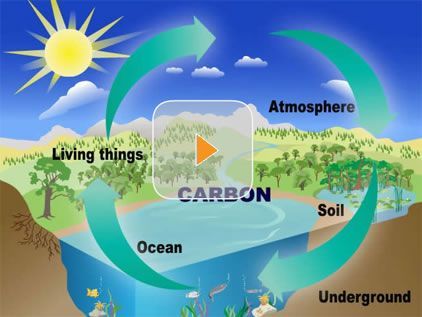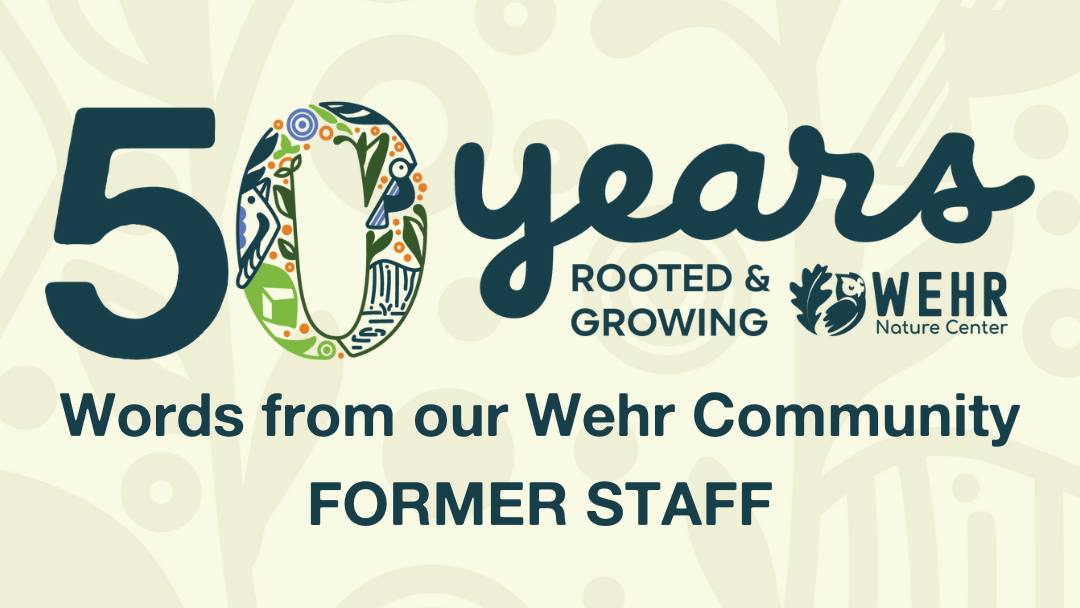Climate Change is Changing Wehr
Written by Bev Bryant
We tend to think of climate change as being a far-away problem; something that is happening in Australia or to Polar bears, or to our great-grandkids at some point in the distant future. The reality is climate change is happening right now and right here. At Wehr we have noticed the changes that warming temperatures and stronger storms have made to our natural areas.
- What is causing these changes to happen?
- How is Wehr and Wisconsin being impacted?
- What can we do to help?
- The first step is to understand, so please read on!
What is causing the climate to change?
Climate change is caused by an increase in the amount of CO 2, and other greenhouse gases in our atmosphere. When we burn fossil fuels like oil, gasoline, coal, and natural gas we release large amounts of CO 2 into the atmosphere. This rampant CO 2 accumulates in the upper atmosphere where it acts like a thick, heat-trapping blanket. The extra heat that it holds inside our atmosphere is causing temperatures to rise and disruptions in our global weather system.
These videos explain the role of CO 2 in the climate crisis:
How is climate change impacting Wisconsin and Wehr Nature Center?
Impacts of Changing High/Average Temperatures
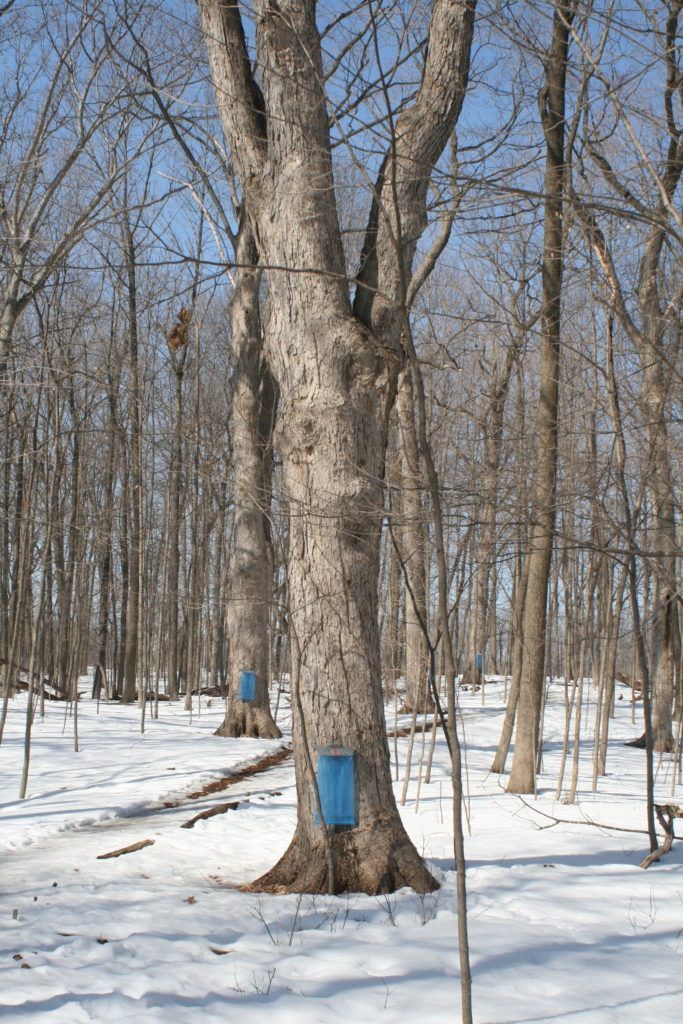
Wisconsin’s average temperature has increased 2.2⁰ F since 1900. Winter and spring temperatures are seeing the most dramatic shifts. Scientists project that by 2050 our average winter temperature will have increased by 5⁰ to 11⁰ F! In other words, by the mid-21 st century our climate will more resemble that of current day Missouri than the climate we have known in the past.
Here at Wehr, maple syrup making is one of our favorite traditions. That process depends on having a stable winter/spring climate and healthy sugar maple trees. Our maples are increasingly stressed by summer heat and drought, and in the future will likely disappear from our woods. After all, Missouri doesn’t produce maple syrup.
Visit NOAA’s Wisconsin climate summary for learn about impacts of temperature change.
To see how maple sugaring and other Wisconsin traditions such as fishing are being impacted by climate change, view the excellent stories at Climate Wisconsin.
Impacts of Changing Precipitation Patterns
Wisconsin is already experiencing changes in our precipitation patterns. There is more rain falling in the winter and spring, and we have more droughts and downpours in the summer. This new pattern is causing frequent flooding which impacts Wisconsin farms, roads, buildings, and basements and our natural environments.
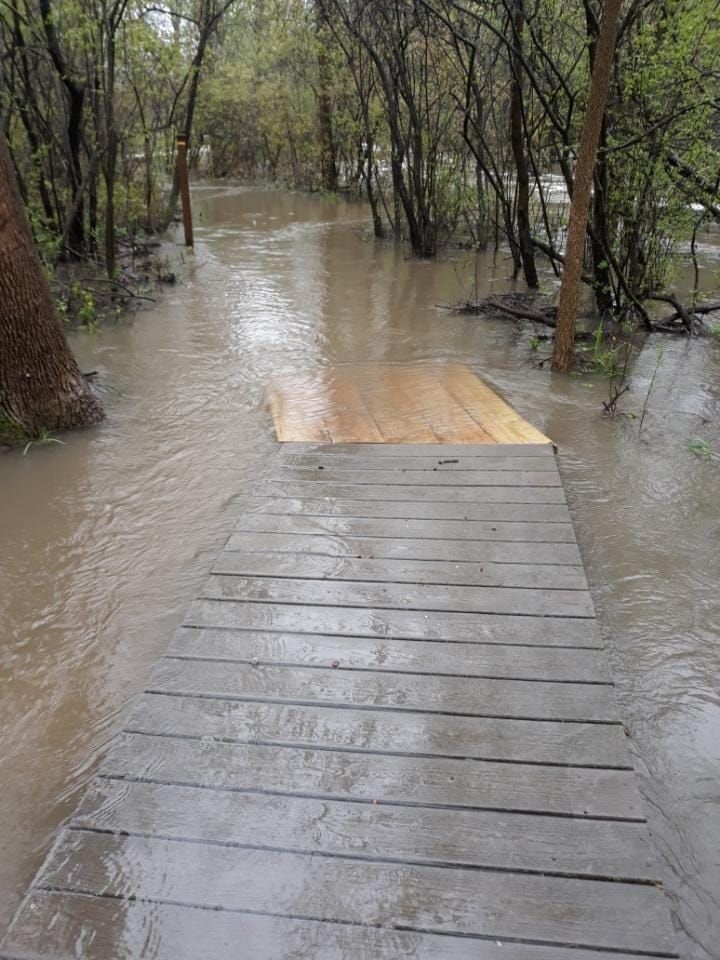
Increased flooding and heavy downpours have significantly impacted the streams, wetlands and lake here a Wehr. Flash flood events erode stream banks and deposit sediment in our wetland and lake. This has caused Mallard Lake to become shallower and warmer, which impacts water quality. Heavy spring run-off brings high loads of nutrients from fertilizers, manure, and sediments, causing algal blooms in Mallard Lake. Flooding also impacts our man-made structures, damaging our piers, boardwalks and bridges.
What can we do to help?
There are many ways to help! Actions can be taken to adapt to the changing climate, while at the same time we work to mitigate the worst of the possible climate change scenarios.
This excellent video from Climate Wisconsin illustrates adaptation and mitigation: https://climatewisconsin.org/story/adaptation-mitigation.html
Here at Wehr we have adapted by installing permeable pavers which absorb run-off during flood events, reinforcing our piers and boardwalks to withstand high waters, and including more southern species as we replant areas impacted by tree loss. Protecting and restoring natural habitat here at Wehr, in our parks, and even in our own yards is also vital to preserving biodiversity stressed by climate change.
Reducing carbon emissions is key to mitigating climate change. We can all make changes in our lives to reduce emissions and to increase carbon uptake. Wehr invites you to join us in October 2020 as we participate in a global action to reduce carbon emissions. Volunteers, staff, and supporters can join Team Wehr to participate in the People’s Ecochallenge.
The Ecochallenge is an online education portal that supports and educates you to take actions that protect our environment. You can choose from daily or one-time challenges, set your own goals, and report your progress all within our team portal. Like Weight Watcher programs supports people to lose weight, the Ecochallenge helps us as we change habits that shed CO 2. We will share more details about the Ecochallenge in our summer Wehr Words and via our website, but you can visit Project Drawdown and Ecochallenge dot org to start learning about effective ways to take action to protect our climate.
The post Climate Change is Changing Wehr appeared first on Friends of Wehr Nature Center.



